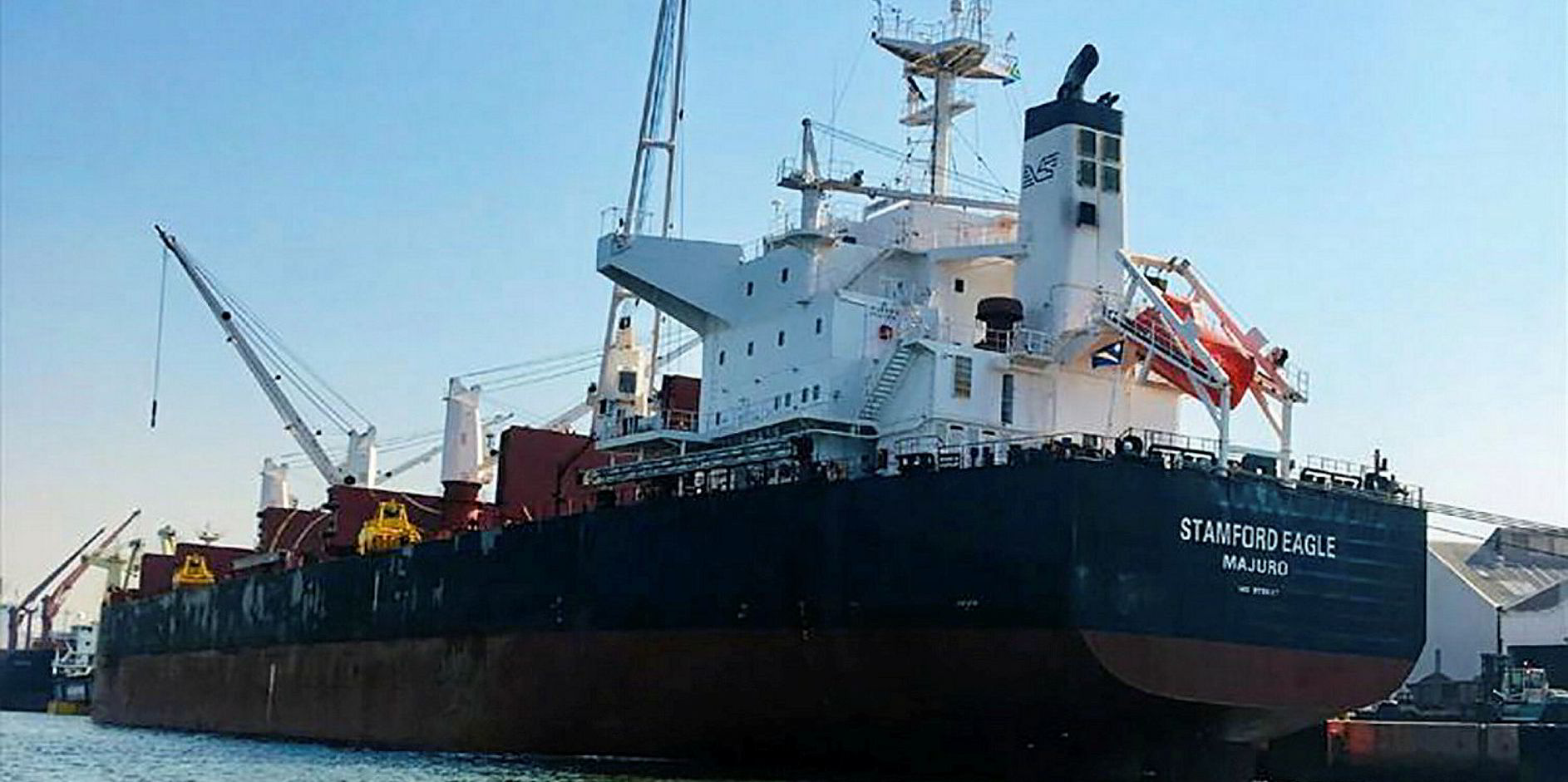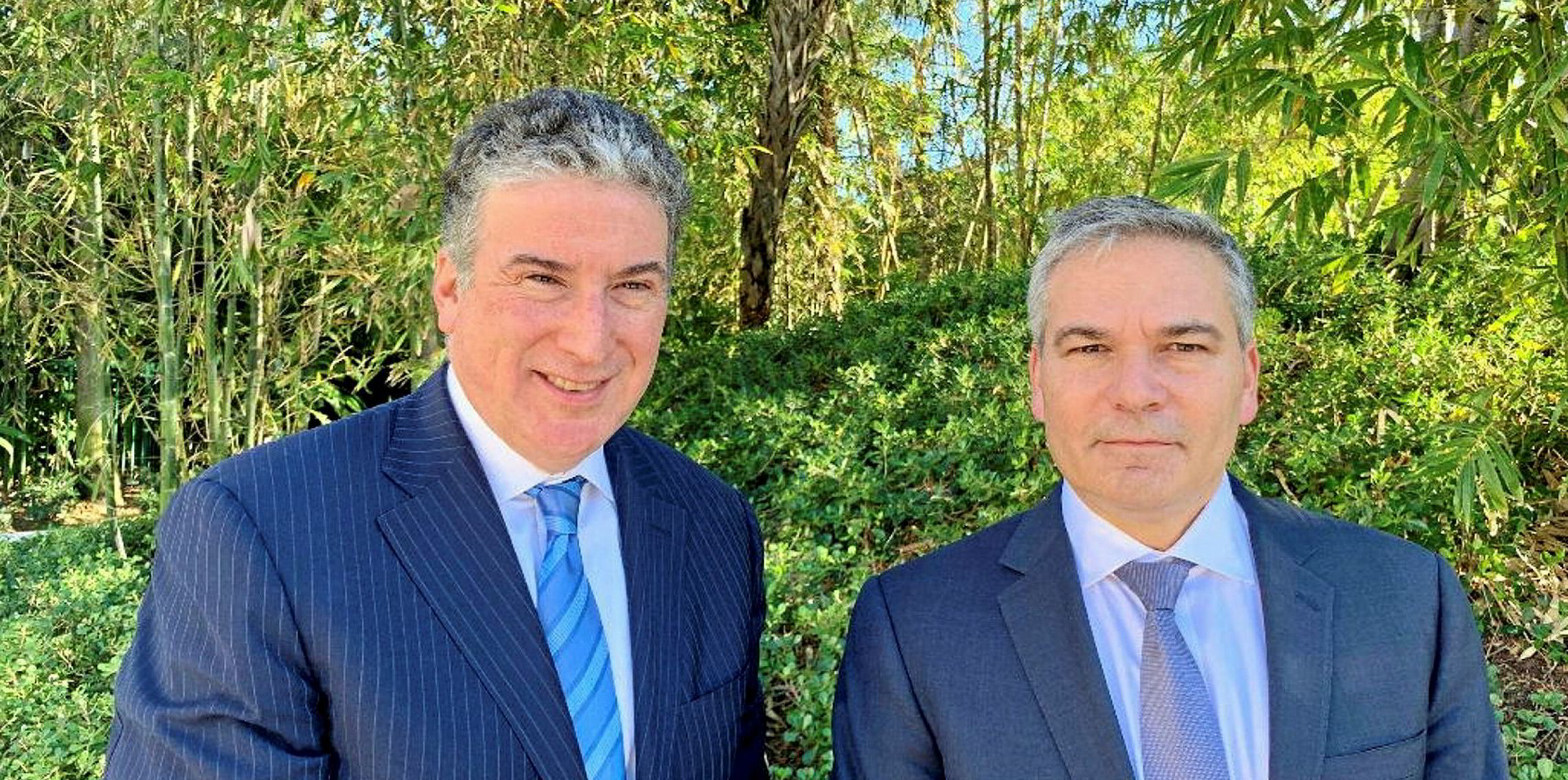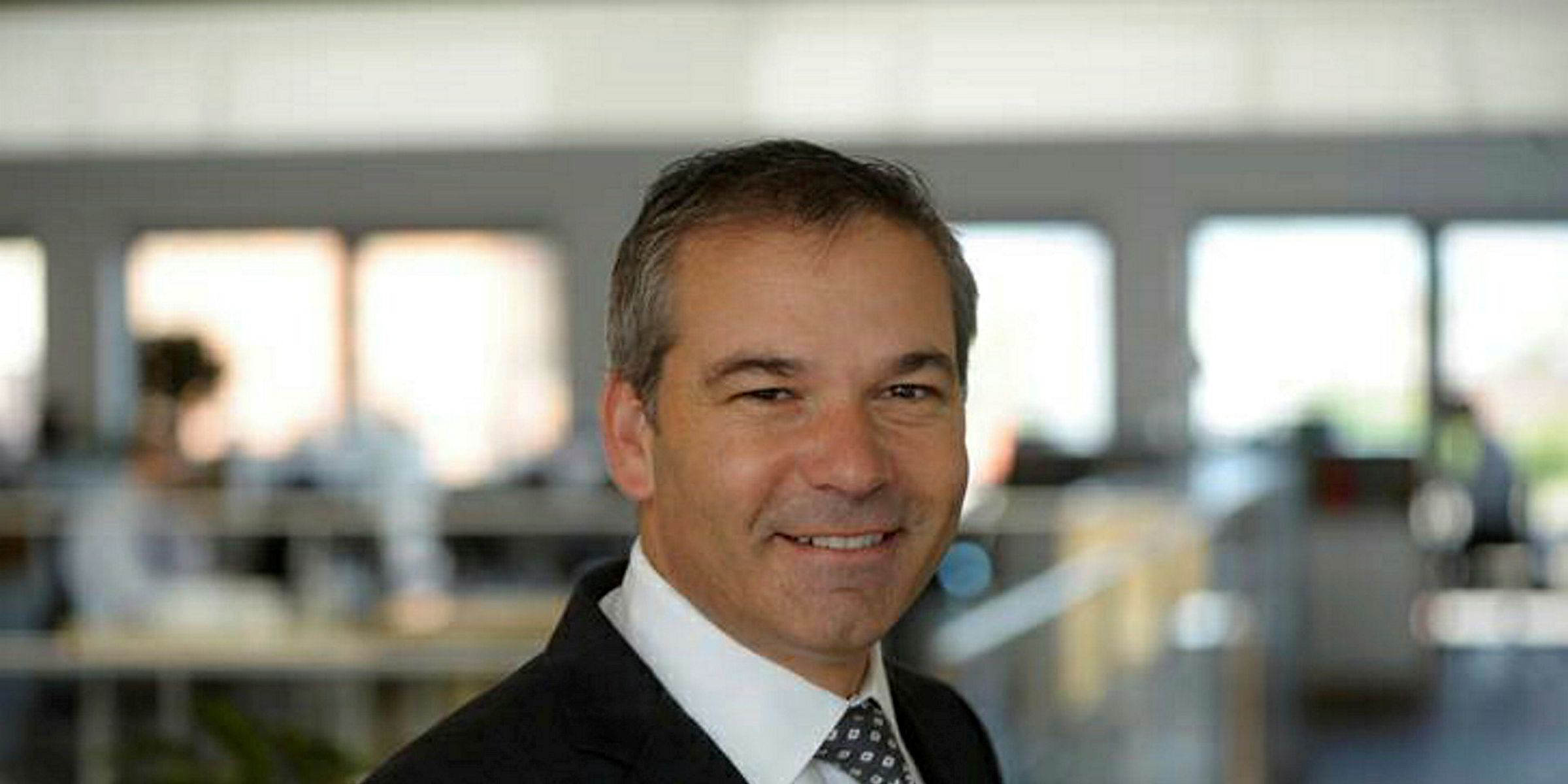It is not a stretch to say that Gary Vogel came to an annual investor conference in Florida feeling vindicated over a plan regarding the use of exhaust gas scrubbers that he and his Eagle Bulk Shipping team had laid out in 2018.
Speaking with TradeWinds about a year ago, at the same Noble Capital Markets investor conference in south Florida, Vogel explained a programme to install the exhaust filtering devices on most of the fleet.
It was a move that seemed contrarian and even counter-intuitive, in that scrubbers save the most money for operators of larger ships, not the fleet of medium-sized supramax and ultramax bulkers owned by Stamford-based Eagle Bulk.
But that was the point, Vogel insisted. Eagle Bulk was doing it largely because its competitors were not. Its unconventionality would bring its reward.
Only about 6% of owners in its vessel classes have installed scrubbers.
To be sure, Vogel had no way of knowing that the 1 January IMO 2020 emissions deadline would be closely followed by the China coronavirus scare that has collapsed shipping freight markets, bringing some of the lowest Baltic Dry Index rates in history.
38 retrofits
But here he was again at the Noble conference, counting himself fortunate to have 38 of the intended 41 scrubbers retrofitted at a time when they could make the difference between running bulkers at a profit or a loss.
“Obviously there was a myriad of things put forward at the time as to why it wouldn’t work or shouldn’t work,” Vogel said on the sidelines of the conference.
“But fuel availability has not been a problem. We’ve been able to stretch the number of days we spend at sea, which improves the economics on a fuel investment.
“And the spreads [between high-sulphur and compliant fuels] have largely been in line with expectations.”

Eagle Bulk had always considered having most of its scrubbers fitted by early January as “a strategic imperative”, he noted, as it believes spreads would be fattest right after the deadline.
“Clearly, we would have hoped for a stronger rate environment overall, but having that incremental cash flow is always meaningful, especially in a weak rate climate,” Vogel said.
He would not talk about whether Eagle Bulk’s bulkers are running at an operational profit or loss at the moment, as it will report first-quarter earnings in a few weeks.
Dire market
Still, in the current dire market, a scrubber premium could easily represent the difference between red ink and black for many dry owners.
“I can’t speak about specifics, but as I said, it’s meaningful,” Vogel said.
“When the index environment is around $5,000 per day, that’s very challenging absent scrubber revenue.”
While no one knows the duration of the coronavirus fallout, it has created anxiety and defensive measures on the part of many owners who had expected to experience a relatively strong market in the quarter.
Again, Eagle Bulk has seemed to make the right choices, lagging behind some of its dry bulk peers in instituting a shareholder dividend — something both Star Bulk Carriers and Genco Shipping & Trading implemented last year.
“We’ve always said returning capital to shareholders is a goal of ours,” Vogel said.
“But 2019 was a huge capital-expenditure year for us with the scrubber programme. We decided we’d get to 2020 and then see.
“I’ve always said I’d rather be a quarter late than a quarter early. So it feels appropriate that we haven’t instituted a dividend yet.”
With Eagle Bulk’s scrubber premiums and relatively low gearing, defensive measures like ship sales or sale-leasebacks likely are not on the drawing board for the moment.
Eagle Bulk also has $70m undrawn on its revolving loan facility at last reporting.
So, while the company would have hoped to be inflating already strong profit margins with its scrubbers premium this quarter, it is well placed to make the best of the bad hand dealt.
“Is it frustrating? Absolutely it’s frustrating,” Vogel said of the economics around the coronavirus.
“First of all, it’s a human tragedy for the people affected. But on a business level, sure it is. Dry bulk has had a number of unanticipated one-time events thrown our way — the Vale dam collapse in Brazil, the Asian swine flu.
“Volatility is something to which we’ve become accustomed.”








